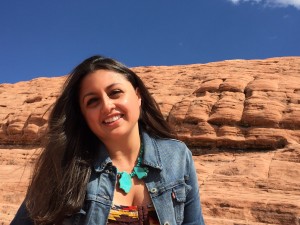Welcome to the 6th edition of my new blog series, “Artists & Innovators,” a series of interviews with campaigners, entrepreneurs, artists, and advocates who are solving problems with passion and innovation.
My next subject, Michelle Mayorga, has spent nearly 2 decades working on campaigns and progressive issues, and working in local and national administrations. She previously served as Western Field Director at the AFL-CIO, Western Political Director at the Democratic Congressional Campaign Committee, and Coordinated Director for the Democratic Party of New Mexico.
Michelle also held the position of National Field Director at Planned Parenthood. And she served as an appointee to the USDA’s Foreign Agricultural Service in the Obama administration.
During the 2004 election, she was the Deputy Western Field Director at the Democratic National Committee. She also worked as a speechwriter for the City of New York’s Department of Youth and Community Development under Mayor Michael Bloomberg.
Recently, Michelle was awarded the honor of membership in the 2016 top 40 political consultants under 40, by the American Association of Political Consultants.
Michelle obtained her BA at Yale University, where she was a double major in American Studies and Ethnicity, Race, and Migration. She is currently based in Las Vegas, Nevada.
Our Interview
John Dos Passos Coggin: Where in Florida did you grow up? In terms of ethnicity and migration, how has your home community changed since your childhood?
Michelle Mayorga: We moved around a lot when I was a kid. We moved from state to state as well as all over South Florida. Generally speaking, I think that South Florida has really come in to its own as a diverse and thriving community. It’s been great to see and experience this transformation.
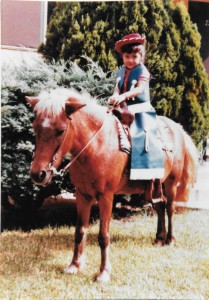
JDPC: Did you grow up in a political household? What is the source of your activism?
MM: I can’t say that I grew up in a political household. Neither of my parents were particularly political. I did grow up Nicaraguan in the 1980s. Even today people want to talk with me about the politics of Nicaragua in the 1980s.
However, I would have to say that my activism probably comes from my great-grandmother. She was a women’s advocate, single mom, union member (garment workers), union organizer, and teacher. She always said that the reason she wanted to come to the United States (which she did in the 1920s) was because she heard that women in the United States could attend college. She passed away when I was young, but her influence has always stuck with me.
JDPC: Did you grow up in a bilingual household? When did you learn Spanish?
MM: My mother teaches French and Spanish so I always had Spanish and Latin American culture around me. I learned the most about reading and writing Spanish in high school and college.
JDPC: Who were the first politicians that entered your political consciousness and made a significant impression on you?
MM: I certainly have early memories of politicians. However, the most significant impression made by politicians on me in my early life was that I really didn’t know of any politicians like me. I really didn’t have a sense of Latinas being involved politically when I was young.
JDPC: What are your most vivid memories of the 2000 presidential election and the Florida recount? How did the outcome impact your interests?
MM: The 2000 presidential election was a big deal for me. It was the first presidential election when I was able to vote. I had followed the news, volunteered, and worked hard in support of the Democrats and Al Gore. I really didn’t know what to expect and didn’t have a sense that the recount was completely abnormal. My most vivid memory is training to be a Democratic Observer in the 2000 presidential recount and learning about hanging and pregnant chads.
The recount and its outcome inspired me to keep working on elections (and change my college major).
JDPC: What lessons did you take away from your political activism at Yale? Was it good training for a career in professional campaigning?
MM: I had the most fun being politically active at Yale. I learned so much being part of the college Democrats and working alongside my fellow students. To my knowledge, I was the first Latina President of the Yale College Democrats and I loved every minute of it. Together we brought voting on campus from an average of 33 to an average of 300 students (yes, I still remember the exact numbers). We also helped students request absentee ballots and made sure they mailed them back. This was a great education in the basics of campaigns. I learned to talk to voters, inspire volunteers, create spreadsheets, and take people from registration to turning out to vote.
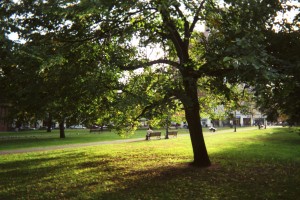
Circa 2005
JDPC: You have campaigned all over the country for causes and campaigns. When beginning a campaign in a new state, away from your “home turf,” what are your guiding principles for success? Are there principles that are universal no matter the region?
MM: My best advice for beginning a campaign in a new place is first get a good sense of the candidate or issue group. How do they think of themselves? What are their goals? How do they see you working together?
Next, I would set out to learn as much as I can. My advice is to talk to everyone. Then ask the people you have talked to whom else you should talk to. There will always be naysayers or unhelpful people. It’s important to know all sides and to hear people out. This takes some open-mindedness and time, but it’s worth the effort.
JDPC: You have worked in the West for a long time. What have you learned about the region over the years, in terms of politics and culture? What do you like about the region?
MM: I absolutely love working and living in the West. There is so much history and culture in the West and it influences the politics of the region. There is certainly an independent spirit and a deep respect for the land that you find in people out West. There are families that have lived on the same land for 400 years. There are stories of pioneer men and women creating homesteads in the 1800s, actors following their dreams to Hollywood, and Native Americans living on and working the land for countless generations. Even though there is a deep connection to recent and ancient history in Western politics, Westerners generally look to the future and favor independence.
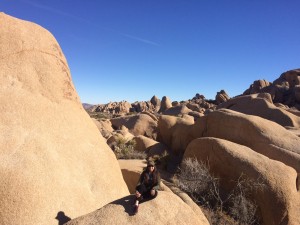
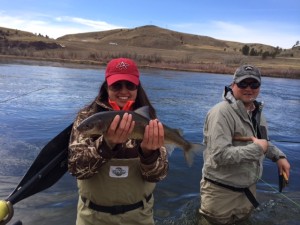
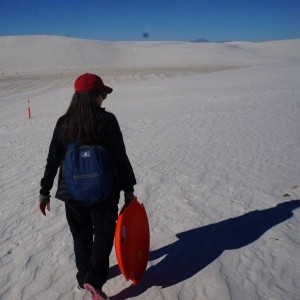
JDPC: The U.S. mainstream media tends to regard Cuban-Americans—especially those living in Florida—as a monolithic Republican voting bloc. Is this characterization accurate?
MM: There is pride in Cuban Americans being in a position to run for president of the United States. This pride doesn’t necessarily translate into votes at the ballot box. It has been well documented that President Obama won Cuban Americans age 18-50 in both 2008 and 2012. Additionally, the percentage of Cuban Americans identifying themselves as Republican has dropped from 70% to 53% over the last 20 years. This is a group that is growing, building lives in the United States, and evolving over time. Cuban Americans are not one-issue voters at any age. There is certainly an age divide on the issue of U.S. relations with Cuba. However, Cuban Americans are also concerned with all the political issues of the day and have views all over the political spectrum.
JDPC: Due to economic hard times, outmigration from Puerto Rico to the United States mainland is at a record high. How do you see this impacting the Latino vote in the 2016 presidential election?
MM: Puerto Ricans are born U.S. citizens. Unfortunately, Puerto Ricans in Puerto Rico can’t vote for President. Though they do have a role to play in both the Democratic and Republican presidential primaries. When Puerto Ricans move to the mainland they are eligible to vote in all elections including the presidential election. Puerto Ricans have been moving to states like New York and Florida for decades – this migration inspired the musical West Side Story in the 1950s. They certainly have growing political power as the population grows and they become a larger portion of the electorate. In 2016, we will see a Puerto Rican electorate that continues to grow in important swing states like Florida and could help decide the presidential election. Presidential candidates would be smart to appeal to this portion of the electorate.
JDPC: The U.S. mainstream media tends to regard U.S. Latinos as a uniform demographic group bonded by the immigrant experience. Is this characterization accurate?
MM: Latinos in the U.S. come from a variety of experiences. Some Latinos have immigrated here, others have had family members who immigrated. Many Latinos can trace their heritage in the U.S. back to before the existence of the U.S. and/or the state they live in. There are Latinos that came to the U.S. seeking political asylum, and others that came expecting to return to their home country after turmoil had died down or the economy had recovered. U.S. Latinos are bonded by the fact that they are all defined as Latinos within the U.S., but they can be very different from each other. Latinos in the U.S. come from a variety of experiences, cultures, countries, ethnic backgrounds, and climates. They speak many languages (English, Spanish, Nahuatl, Portuguese, etc…), practice many religions, and differ in their political views.
JDPC: Your current political strategy position is based in Nevada. Do you see Nevada continuing to trend Democrat? How is Latino immigration affecting Nevada politics?
MM: The majority of Nevadans voted for President Obama in 2008 and 2012. However, in 2010, Nevadans elected both Democrat Senator Harry Reid and Republican Governor Brian Sandoval. In 2014, we saw Republicans make big gains with statewide offices and the legislature in the state. Nevada is a purple state and will remain this way for the next several election cycles. Of all registered voters in Nevada, 20.8% are “New Americans” – this includes all ethnic groups, not just Latino. Latinos are a growing population in the state and they are registering to vote. We saw the effects of Latino political power in Nevada during the presidential primaries. Both Democratic candidates appealed to Latinos as did many of the Republican candidates. Additionally, in 2016, Catherine Cortez Masto is running for U.S. Senate in Nevada. If she wins, she would be the first Latina in the Senate. The influence of Latinos in Nevada politics is clearly growing!
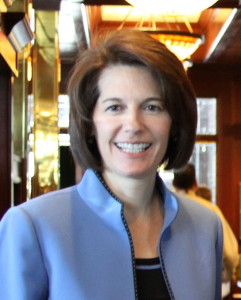
JDPC: If Latino immigration continues to the United States, perhaps through 2050, do you see bilingualism on the rise? Or do you envision no change or a decline in Spanish use?
MM: Bilingualism will rise due to globalization and the changing economic climate. As technology continues to bring us closer to peers and creates opportunities in other countries, speaking another language will be paramount for business and personal success. Currently, there are more monolingual people in the U.S., of all ethnicities, learning a second language (often Spanish) in order to adapt to the demands of the growing global economy.
JDPC: Much of political field work involves canvassing door-to-door, meeting people from all walks to life. Do you have a story you’d like to share about going door-to-door?
MM: There is no better way to get to know a community than to knock doors and meet the people who live there. You never really know who will answer the door and you come across a lot of characters. I am always struck by how nice people are to a stranger at their front door. People will often thank me at the door for the work I am doing and they will sometimes offer me water or a restroom. I even had one father call all his kids to the door to show them what he wanted them do to when they were old enough. He had all 3 of them thank me and he gave me a donation for the campaign!
JDPC: A recent report by the New American Leaders Project indicates that the number of Latinos elected to state and local offices has grown very little. The report details that “Latinas also experience a deficit of outside support in comparison to others, including frequent reports of being discouraged by their political party more than any other group.” Can you share your insight into the barriers to entry faced by Latinas?
MM: Certainly, it is not easy being Latina in the political sphere. We are underrepresented from city councils to Congress. No one can deny that there are roadblocks and discouragements everywhere. However, I am hopeful that this is changing. We are seeing more and more Latinas run for office and win! There is also a growing support system for Latina candidates. In 2016, we may even see the first Latina Senator get elected in Nevada.
We not only need more Latinas running for office, but we need more Latinas working on campaigns and in their communities to encourage voters and promote Latina candidates. Latina community organizers like Dolores Huerta are a wonderful inspiration for this work. We need to take her example working with the United Farm Workers and apply it to community activism and voting. It’s going to take “todo la gente” to make Latinas feel welcome joining the political process.
JDPC: As a historian, I enjoy spotlighting unsung heroes and marginalized voices. In honor of Women’s History Month, I invite you to spotlight a female politician or activist who has inspired you.
MM: At age eight, Sylvia Mendez played an instrumental role in the Mendez v. Westminster case, the landmark desegregation case of 1946. The case successfully ended de jure segregation in California and helped paved the way for integration and the American civil rights movement.
Mendez was denied enrollment to a “Whites Only” school, an event which prompted her parents to file a lawsuit in the local federal court.
Sylvia’s story has always inspired me because it is a story of her parents wanting a better life for their daughter. It’s a universal story that crosses cultures and gets at the American Dream. Additionally, her impact is till felt today.
Sylvia’s case made California the first state to legally desegregate schools. However, according to the Civil Rights Project at UCLA’s 2014 report on school segregation in California, half of all Latino children in the state attend schools that are at least 90 percent Latino or African-American. In fact, the two California schools named in honor of Sylvia’s parents are both over 90% Latino. 2016 marks the 70-year anniversary of the landmark Mendez v Westminster case and a time when California has surpassed Texas as the state where Latino schoolchildren are the most segregated.
We still have a lot of work to do and a long way to go.


